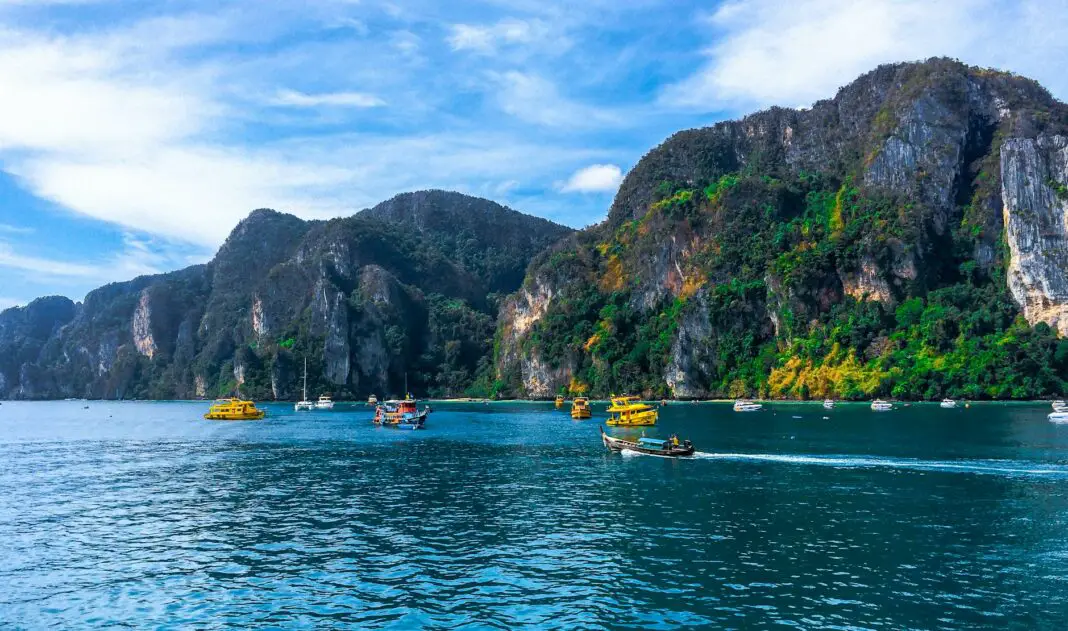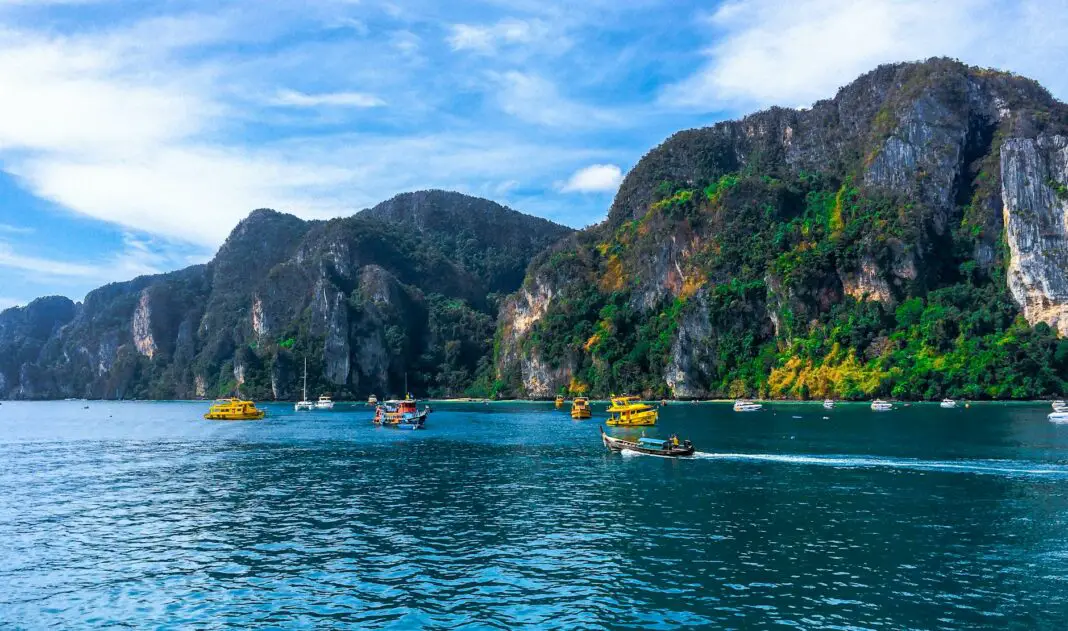Thailand is renowned for its stunning beaches, vibrant culture, and tantalizing cuisine, but did you know it also boasts incredible eco-tourism opportunities? For those who wish to embrace a sustainable travel experience, there are endless possibilities waiting to be discovered in this Southeast Asian gem. Whether it’s trekking through lush jungles, basking in the tranquility of pristine islands, or engaging in community-based tourism, Thailand serves as the ultimate eco-tourism paradise. Join in this adventure and explore what makes Thailand a premier destination for eco-conscious travelers.
In this blog post, we’ll dive deep into various aspects of eco-tourism in Thailand, uncovering enchanting locations, sustainable practices, and seamless travel tips to ensure an enriching experience. Each section details the eco-friendly initiatives available, will provide insight into local cultures, and inspire you to positively impact the environment while exploring Thailand’s beauty. Get ready to embark on a journey that will not only satisfy your wanderlust but also allow you to foster meaningful connections with both nature and community!
**Table of Contents**
- Unique Eco-Tourism Spots in Thailand
- The Rise of Sustainable Tourism in Thailand
- Travel Tips for Eco-Conscious Explorers
- Cultural Experiences That Empower Local Communities
- Eco-Friendly Accommodations in Thailand
- Why You Should Choose Thailand for Your Next Eco-Trip
**Unique Eco-Tourism Spots in Thailand**
Thailand’s landscape offers a treasure trove for eco-tourism enthusiasts. National parks such as Khao Sok, Doi Inthanon, and Erawan entice visitors with astonishing biodiversity and breathtaking scenery. Khao Sok National Park, for instance, is home to one of the oldest rainforests in the world, offering stunning hikes and wildlife spotting—from gibbons to elephants. Travelers can also paddle through the emerald waters of Cheow Lan Lake, surrounded by towering limestone cliffs. This enchanting experience not only reconnects you with nature but also showcases the importance of preserving such fragile ecosystems.
Equally captivating is the island of Koh Chang, a paradise for beach lovers and eco-adventurers alike. It offers a plethora of activities, including snorkeling in vibrant coral reefs, hiking through the thick jungle, and visiting the local fishing villages. Here, you can engage with the community to learn about sustainable fishing practices and the importance of marine conservation. Through these experiences, you enhance your awareness of environmental challenges while enjoying the natural beauty Thailand is celebrated for. Don’t overlook the northern region of Chiang Mai, either. It’s a hub for ethical elephant sanctuaries that rescue and rehabilitate elephants, allowing volunteers to gain a deeper understanding of these majestic animals while ensuring their welfare.
**The Rise of Sustainable Tourism in Thailand**
The shift toward sustainable tourism in Thailand has gained significant momentum in recent years, with local government and communities focusing on eco-friendly initiatives. Notably, eco-tourism becomes a lifeline for preserving landscapes, wildlife, and cultural heritage. Several organizations now actively promote responsible travel practices, encouraging visitors to minimize their environmental footprint while experiencing the joys of Thailand. By participating in eco-tours, travelers contribute directly to conservation efforts and local economies, essentially becoming a part of the solution rather than the problem.
Moreover, destinations are increasingly offering programs aimed at raising awareness among tourists. Many operators educate visitors on local cultures, traditions, and conservation needs, ensuring guests leave with not just memories but also a sense of responsibility toward the environment. As this wave of sustainable tourism continues to grow, travelers can rest assured that their adventures contribute meaningfully to the preservation of the breathtaking natural landscapes and vibrant cultures they come to cherish.
**Travel Tips for Eco-Conscious Explorers**
To make the most of your eco-tourism journey in Thailand, consider these actionable insights. First and foremost, choose local transportation methods such as bicycles, scooters, or public transport to minimize your carbon footprint. For instance, renting a bicycle to explore the back roads of Chiang Mai not only enhances the experience with a more intimate connection to the surrounds but also supports local business owners. Secondly, pack reusable items such as water bottles, bags, and utensils to reduce plastic waste during your travels.
Additionally, immerse yourself in community-based tourism initiatives, which often offer genuine insights into the local way of life. Farmers’ markets are fertile grounds for discovering traditional produce and handicrafts, while local workshops educate visitors about handicrafts, cooking, and customs, enriching your travel experience significantly. By prioritizing these eco-friendly choices, you’re not only preserving the environment but also enriching the lives of local communities—creating a symbiotic relationship that benefits everyone involved.
**Cultural Experiences That Empower Local Communities**
Travel in Thailand is a gateway to genuine cultural experiences that uplift communities while preserving their unique heritage. Visit local markets where artisans sell handmade crafts, allowing you to engage directly with producers. This interaction fosters a connection with the culture and encourages the continuation of traditional crafts that may otherwise fade away in an increasingly globalized world.
Participating in volunteer activities can also provide a meaningful experience that expands your understanding of local customs and issues. Whether it’s helping out at a community school or participating in a tree-planting event, these actions resonate well beyond the immediate impact, creating lasting impressions and friendships. This kind of travel empowers not only you as a visitor, but it also strengthens the fabric of the communities it touches, ensuring that your trip contributes to a more sustainable future.
**Eco-Friendly Accommodations in Thailand**
Thailand showcases a range of eco-friendly lodging options that cater to environmentally conscientious travelers. From luxurious, sustainable resorts to charming eco-lodges nestled in nature, there are accommodations to fit every budget while supporting eco-friendly practices. Look for establishments that utilize renewable energy sources, practice water conservation, and source their food locally. Eco-resorts in places like Koh Phangan offer organic farming practices and yoga retreats, celebrating wellness and sustainability at its finest.
Moreover, consider selecting homestays that deepen your immersion in Thai culture. Staying with a local family allows for authentic culinary experiences, enabling you to savor home-cooked meals made with locally sourced ingredients. These interactions foster relationships that enrich your travel experience, elevating it to something truly unique. Prioritize accommodations that align with your values and support the local economy, ensuring your footprint remains light while enjoying unparalleled experiences.
**Why You Should Choose Thailand for Your Next Eco-Trip**
Experiencing Thailand through the lens of eco-tourism opens up realms of adventure that both challenge and reward travelers seeking a sustainable path. The country’s diverse landscapes, rich cultural heritage, and dedication to eco-conscious tourism means visitors can explore with peace of mind knowing they are contributing to the preservation of this extraordinary environment. With numerous breathtaking landscapes, from stunning beaches to verdant mountains, each moment spent in Thailand is a chance to connect more deeply with nature and communities.
As you embark on your journey, you’ll discover that eco-tourism in Thailand isn’t just a vacation; it’s a way to make a difference. Your choices matter. They encourage the local economy, enhance your experience, and help preserve the natural beauty for generations to come. So pack your bags with intention and set off to uncover the magnificent eco-tourism paradise that is waiting just for you!
**Your Next Adventure Awaits: Join the Eco-Tourism Wave!**
Reaching for an adventure that leaves a lasting impact? With its commitment to sustainable practices, enchanting landscapes, and rich cultural experiences, Thailand presents an ideal choice for eco-minded travelers. By choosing eco-tourism, you contribute positively to the environment and local communities, forging connections that will remain in your heart long after you leave. The journey toward a more sustainable way of travel starts with you—take action and embark on a trip that is as beneficial to you as it is to the planet.
**Frequently Asked Questions**
**What is eco-tourism, and why is it important?**
Eco-tourism is responsible travel to natural areas that conserves the environment, promotes sustainability, and fosters cultural understanding. It’s vital because it helps protect fragile ecosystems while contributing to local economies.
**When is the best time to visit Thailand for eco-tourism?**
The ideal time is between November and February when the climate is cooler and more pleasant for outdoor activities. This is perfect for exploring the national parks, beaches, and local communities.
**How can I ensure my travel has a positive impact on the environment in Thailand?**
Opt for eco-friendly tours, support local businesses, minimize waste, and engage in community projects where possible. Reusable products, local transport, and choosing sustainable accommodations also contribute greatly.
**Are there any certifications for eco-friendly businesses in Thailand?**
Yes, several certifications recognize eco-friendly practices in Thailand, such as the Green Leaf Foundation and the ASEAN Green Hotel Standard. Look for these certifications when selecting tours and accommodations.
**What types of wildlife can I expect to see during an eco-tourism trip in Thailand?**
Thailand is rich in biodiversity. You can expect to see elephants, gibbons, monkeys, various birds, and marine life, especially if you venture into national parks and marine reserves.
Image Credit: Pexels





